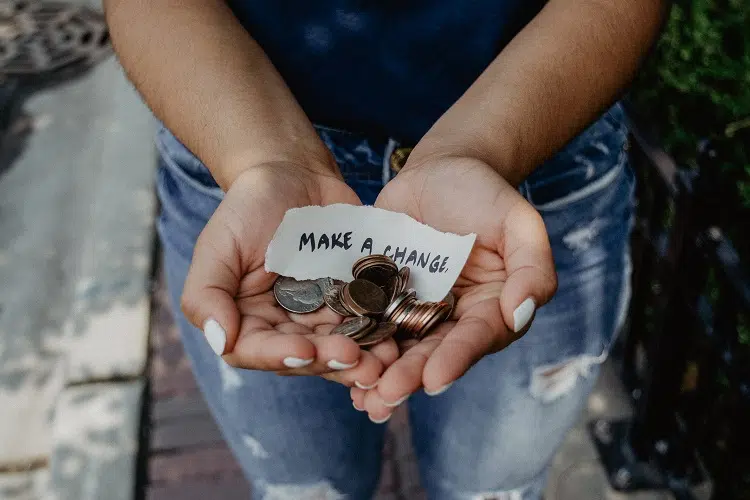So… I sent my son, Romeo, to school with a $20 bill for the book fair.
I get a phone call from the school around noon.
Me: Hello?
Romeo: Mama (in a really sad voice), the book fair lady said I don’t have enough money for the books?
Me: How? The books that you wanted cost $15 and I sent you to school with $20.
Romeo: No you didn’t, you only sent me to school with $1.
Me: Romeo, it was a $20 bill. It equals 20 $1 bills. Where is it?
Romeo: I traded it with my friend to get $3 instead of my $1.
Me: YOU DID WHAT!?
This was my first encounter with entrusting Romeo with a decent sum of cash. Little did I know he did not have the financial literacy that I thought and was deceived by a child who did have a solid financial foundation. This incident taught me a valuable lesson about the importance of educating your child on money as early as possible.
I never had a strong financial foundation growing up and didn’t understand anything about budgets and debt. It wasn’t until I started following this organization called Know Money, Inc that even created a budget for myself. This organization taught me about free financial management tools in order to budget and save. These tools helped me become more responsible as a young mother while still having fun and being the young care-free millennial that I am. Armed with these tools, I have been working extremely hard to correct all of the ignorant financial decisions I have made in the past but the situation with Romeo threw me for a loop. It’s one thing, for me to be reactive to poor financial decisions but it’s another to be proactive and prevent the cycle of poverty all together.
Financial illiteracy is very common due to the lack of equitable access to accurate financial information. Many of today’s youth are projected to fall victim later as adults to scams, high-interest rate loans, and increasing debt. Educating our little ones in financial management can be an effective way to improve their knowledge in five areas: predatory lending practices, public and work-related benefits, banking practices, savings and investing strategies, and credit use and interest rates.
With this realization, I began to not only focus on what I can do to improve my financial situation but also what I can do to set a solid financial foundation for Romeo. We started with the basics of what each piece of money equates to and then began understanding incoming vs. outgoing, and so on. The hardest part about this process was Romeo’s understanding of this “magical card” that he thinks mommy can swipe at any time!
Romeo now has a piggy bank that he adds money to when he completes chores, extracurricular activities, and minor tasks along with a monthly allotment that he receives from his dad. He knows exactly how much money he receives and once a month he adds this money to his “account” which is a cash app account. Instead of a 7 year old keeping up with cash, he has a cash app card which has brought so many efficiencies such as automatic texts with purchases, ability to save, withdraw, and invest. He is so excited and proud to see his money grow every month while still having enough to purchase books from Barnes & Nobles on the weekend. Although… sometimes he wants to buy 5 books at a time and mommy has to give a gentle reminder, “Remember your budget!”
Educating our children on what to do with their dollars and change will in turn make a significant change in their life. Generational wealth is needed to break these cycles of poverty that many of our communities experience. I am thankful that I have learned how correct financial burdens for myself and prevent them from ever happening to my son.
Share some of the creative ideas that you have utilized to educate your little ones on financial freedom!
RELATED:
Let Your Kids Make Money Mistakes
5 Key Lessons to Teach Your Children About Money
What Kids Should Know About Your Finances
Encouragement Table: All Things Money
 Read more of Georgina’s contributions to allmomdoes here.
Read more of Georgina’s contributions to allmomdoes here.

















